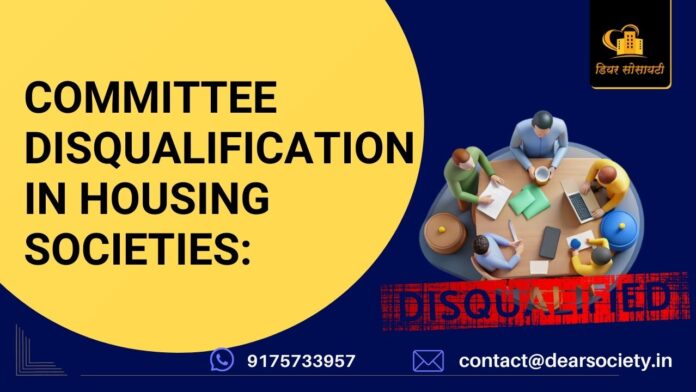Disqualification from the management committee is a serious action, but members have the right to challenge it. The Maharashtra Cooperative Societies Act, 1960, provides an appeal mechanism to ensure fairness in decision-making. If a member believes they were wrongly disqualified, they can approach the Deputy Registrar or Cooperative Court to seek justice.
To initiate the appeal process, the disqualified member must submit a formal application outlining the reasons for contesting the decision. The concerned authority reviews society records, financial statements, and any evidence presented before making a ruling. If the appeal holds merit, the disqualification may be overturned, allowing the member to resume their position. However, if the misconduct is proven, the disqualification remains in force, reinforcing accountability within the society.
While committee members play a crucial role in society management, residents also share responsibility in ensuring ethical governance. Active participation in society meetings, reviewing financial reports, and questioning discrepancies help prevent mismanagement. When residents stay informed and engaged, it becomes difficult for any committee to function with bias or favoritism.
Transparency is the foundation of a well-managed housing society. Conducting regular audits, maintaining proper documentation, and keeping members updated on financial decisions ensure trust. Societies should proactively share information about expenses, funds allocation, and ongoing projects to avoid conflicts or suspicions. An open communication system minimizes disputes and fosters cooperation among residents.
To strengthen society management, strict adherence to the Maharashtra Cooperative Societies Act and Model Bye-Laws is necessary. Committee members should undergo training to understand their legal responsibilities. Educating residents about their rights and the governing laws helps in preventing conflicts. When all stakeholders are well-informed, decision-making becomes more transparent and accountable.
Preventing disqualification cases requires societies to implement preventive measures. Conducting background checks before committee elections ensures that only eligible and responsible members are selected. Strict enforcement of rules and ensuring financial transparency help in minimizing misconduct. Addressing disputes through internal resolution mechanisms before legal action is taken can also maintain harmony within the society.
Legal compliance and ethical practices are the backbone of cooperative housing societies. Disqualifying a member is a corrective measure to uphold governance, not a punishment. The goal is to create a fair and responsible management system that prioritizes residents’ welfare over individual interests. Fair governance benefits everyone by ensuring smooth operations and financial stability.
In conclusion, housing societies must focus on accountability, transparency, and legal compliance to avoid governance issues. Residents should remain vigilant, participate in decision-making, and report violations to the Registrar when necessary. A well-managed society not only enhances the living experience but also ensures long-term financial security for all members.
Also Watch : Important Rera Judgements taken by MahaRERA under different circumstance-2
1. Website – https://www.dearsociety.in/
2. Instagram – https://instagram.com/dearsocietymh?igshid=NmE0MzVhZDY=
3. LinkedIn – https://www.linkedin.com/company/dear-societyin/
4. Facebook – https://www.facebook.com/dearsocietyMH?mibextid=ZbWKwL











 Call
Call Whatsapp
Whatsapp Enquiry
Enquiry